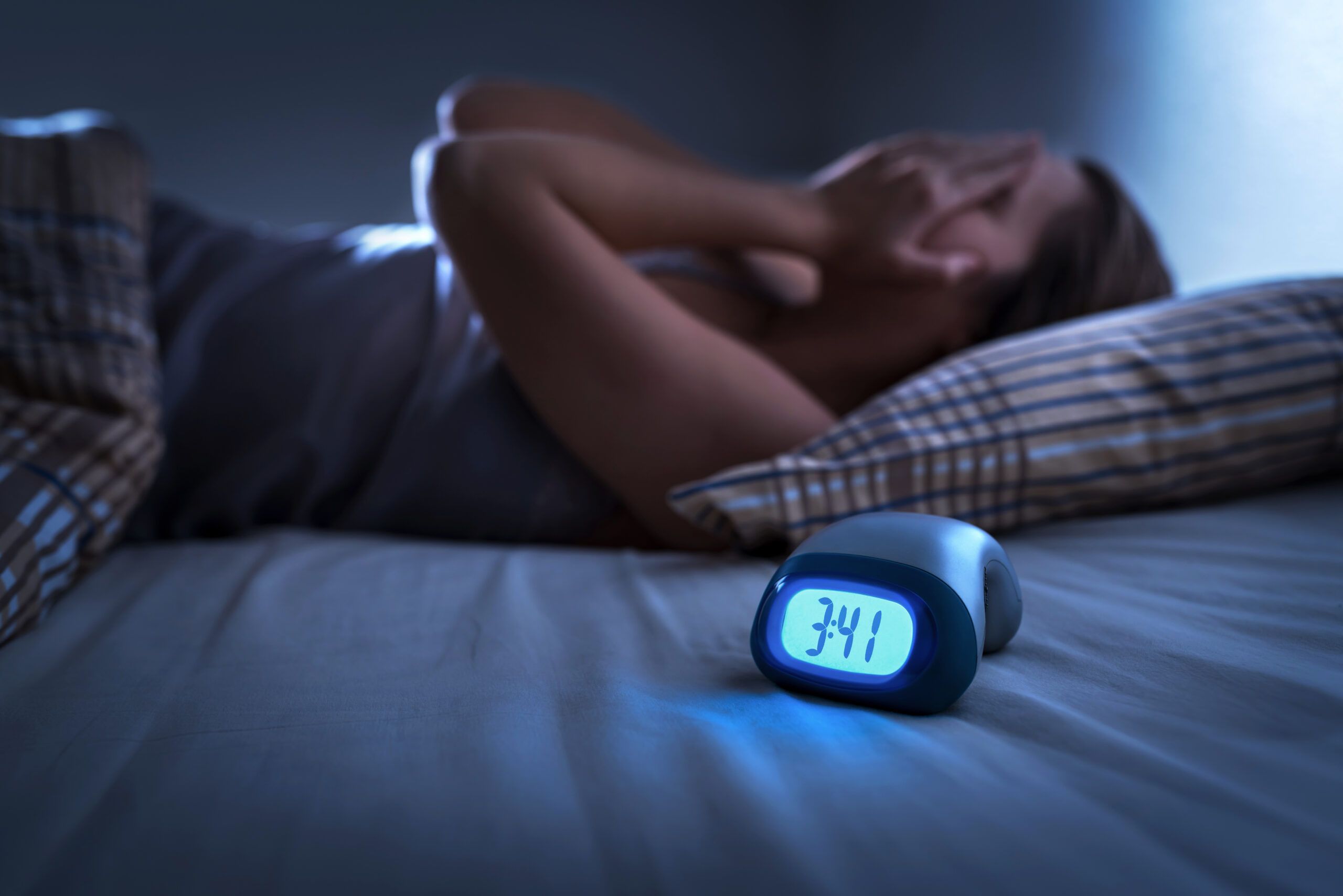Stress, Burnout and Sleep
Prolonged fatigue is one of the most common complaints among our patients. In standard medicine, when someone complains of fatigue, their doctor usually begins by ordering some basic lab tests to exclude thyroid disease and iron deficiency. They may also ask about sleep but after that many patients experience that investigations come to a halt. Many testify that their doctor or psychologist subsequently looks exclusively for explanations in the psychosocial environment. A common diagnosis is stress-related disorder, and patients are often offered treatment with antidepressant drugs. Chronic fatigue is seen by many as a symptom caused primarily by stress and depression, but the fact is that few symptoms can be caused by such a variety of factors as chronic fatigue.
At Nordic Clinic, we work like detectives to identify the individual causes behind each patient’s symptoms. We ask them to describe in detail their symptoms and their fatigue; when the symptoms occurred, if the course was sudden or slow, how it feels, what makes their fatigue worse or better, what other symptoms the patient has and whether they interact. We’re trying to understand the fatigue – can it be myalgic encephalomyelitis (ME)? Is it a dysfunction of the thyroid gland? Is it burnout? Brain fog? Lack of sleep? Undiagnosed diabetes or narcolepsy? We look at the patient’s entire history, from birth to today. We look at conclusions made by their previous doctors and recommend laboratory tests to confirm or exclude our own hypotheses.
Diet, lifestyle and stress play very important roles in our work, but we also look at many factors that differ from case to case. For example, if there’s reason to suspect an infection, we may choose to investigate whether the patient suffers from tick infections, oral cavity infections and chronic viral infections. In case of suspected abnormalities in the patient’s immune system, we recommend appropriate testing. Furthermore, we also look at many different aspects of intestinal function and the composition of the intestinal flora that have been linked to chronic fatigue in medical research. This also applies to mold exposure, nutritional deficiencies, sleep apnea, celiac disease and physical or mental trauma. We can also choose to proceed with sleep investigations and detailed examinations of sex, stress and sleep hormones. If we suspect that the cells’ detoxification processes or mitochondria (where energy is generated in the cells) are not functioning optimally, we use specific testing to rule that out. If there are indications of heavy metal exposure, we investigate that. The patient might’ve been diagnosed with hypothyroidism but standard medication isn’t working well for them. In those cases we can perform an advanced examination of the thyroid function and possibly look at other pharmaceutical alternatives to standard treatment. If we suspect a severe undiagnosed condition, we refer the patient back to primary care.
In summary, chronic fatigue is well suited for a functional medicine investigation. Most of the time, these patients have already been investigated by their primary care doctor, but haven’t experienced symptom relief. According to our clinical experience, the time it takes to recover differs depending on the complexity of the individual case and how long they’ve lived with his symptoms.
Stress, Burnout and Sleep
Mental illness accounts for 46% of sick leave for our Swedish workforce (Försäkringskassan, 2017). The majority thereof are on sick leave for stress-related mental illness.
We work with the following conditions:
- Stress-related disorders
- Sleep disorders
- Burnout
Stress and Burnout
The prevalence of stress disorders and occupational burnout has increased dramatically, now hitting people in many professions and at all ages and stages of life. Work-related stress is one of the biggest risk factors for burnout, but as practitioners we consider the entire life situation of our patients. Care-takers of ill relatives or children with special needs are at particular risk for burnout. This also applies to people exposed to early life trauma.
Stress affects our bodies in numerous ways, both in the short and long term. It increases the risk of virtually all diseases of modern life, such as inflammatory and autoimmune diseases, diabetes, cardiovascular disease and many more.
Stress resilience is affected by social support, sleep and nutritional status. Zinc, B vitamins and magnesium are especially important for our ability to manage stress. Magnesium deficiency makes us more stress-sensitive. Conversely, stress in turn lowers magnesium levels, which can create a vicious cycle.
Sleep issues are often part of the picture. Many testify that they “hit the wall” after their sleep began to falter.
At Nordic Clinic, we help exhausted patients build resilience through stress-reducing techniques, optimising gut flora and nutritional intake, as well as other lifestyle factors such as circadian rhythm, and sleep routines.
However, “burnout” is sometimes confused with other conditions – some patients are diagnosed with a stress disorder against their own beliefs that stress isn’t in fact an underlying cause. In these cases, it may be appropriate to dig deeper. Symptoms of chronic infections often overlap substantially with symptoms of stress disorders. Infections can cause severe fatigue, anxiety, stress sensitivity, exertion-induced deterioration, sleep problems or excessive sleep, pain and depression. Lyme disease and other tick infections are examples of conditions that do not always cause classic symptoms such as rashes and joint pain. When they don’t, they’re easy to miss and many patients receive an incorrect diagnosis. Sometimes standard healthcare does test for borrelia burgdorferi, but fails to test for the many other chronic infections that can cause a range of symptoms indistinguishable from those of borrelia. The misdiagnosed patient group usually do experience any improvements despite prolonged sick leave and rest. Stress-reducing techniques commonly have little to no effect. At Nordic Clinic, we follow the latest research in infection testing with great interest and, in addition to standard testing, also use medical tests from laboratories internationally as a complement.
Sleep – a Pillar Stone of Good Health
We sleep less today than and we suffer negative consequences. Research paints a clear picture – sleep deprivation increases the risk of virtually all diseases; mental illness, autoimmune diseases, cardiovascular diseases, neurodegenerative diseases, neuropsychiatric disabilities, metabolic diseases, susceptibility to infection and cancer. Within these groups we find:
- Obesity
- Diabetes
- Anxiety
- Depression
- Alzheimer’s disease
- Multiple sclerosis
- Diseases of the gut
- Rheumatism
- Lupus
- ADHD
- Myocardial infarction
- Hypertension
- Arteriosclerosis
- Stroke
- …and many more
Sleep deprivation is rarely the only or main trigger for these conditions, but insomnia increases the risk of all types of conditions in a very fundamental way. Many essential biological processes occur only during sleep, such as tissue repair and “clean-up” of the brain. During sleep, waves of oxygenated blood and cerebrospinal fluid wash over the brain, as harmful waste products are eliminated. Good sleep is thus central to good health. That’s why we always ask our patients about sleep.
In standard medicine, pharmaceutical sleep aids are often prescribed for sleep deprivation, which can help the patient get out of a vicious circle. But sleeping pills do not address the root cause. For some patients, this is the beginning of an addiction that risks damaging their health in the long run. Research has shown that those who take sleeping pills are five times more likely to die prematurely (although it is unclear if it is the use of drugs themselves that increases the risk, or if drugs simply don’t restore sleep effectively).
Common causes of insomnia are stress and anxiety. Lack of sleep hygiene is also a major contributing factor. Sleep hygiene aims to recreate the bedtime conditions that we as human beings throughout our evolution have adapted to. It involves temperature, darkness, avoiding blue light, and more. Lifestyle factors also include physical activity, social interaction, coffee drinking and what you eat and when. Like all other processes in the body, our sleep machinery needs specific nutrients in certain amounts to function optimally. Specific vitamins, minerals and amino acids have been shown to be important for the ability to produce and regulate the sleep hormone melatonin and neurotransmitters in the brain (for example, the calming substance GABA).
However, some of our patients suffer from a more complex sleep disorder that isn’t easily corrected with routines. Sleep issues can be symptoms of, for example, anxiety or ME/CFS. Despite suffering from severe fatigue, and applying sleep hygiene, these patients cannot sleep well. In such cases, you need to identify the root causes of the patient’s entire symptom picture. Dysregulated neurotransmitters and hormones may be involved. Many also suffer from unrefreshing sleep despite adequate sleep of 7-9 hours a night.
In summary, sleep disorders can manifest themselves in different ways and have many different causes. When our patients experience issues falling or staying asleep, or suffer from unrefreshing sleep, we take a holistic approach. We listen carefully to the patient and develop an individual action plan. The action plan may include, for example, a sleep study, analyses of the sleep hormone melatonin, the stress hormone cortisol, targeted nutritional therapy with nutrients or adaptogens, and lifestyle changes.





